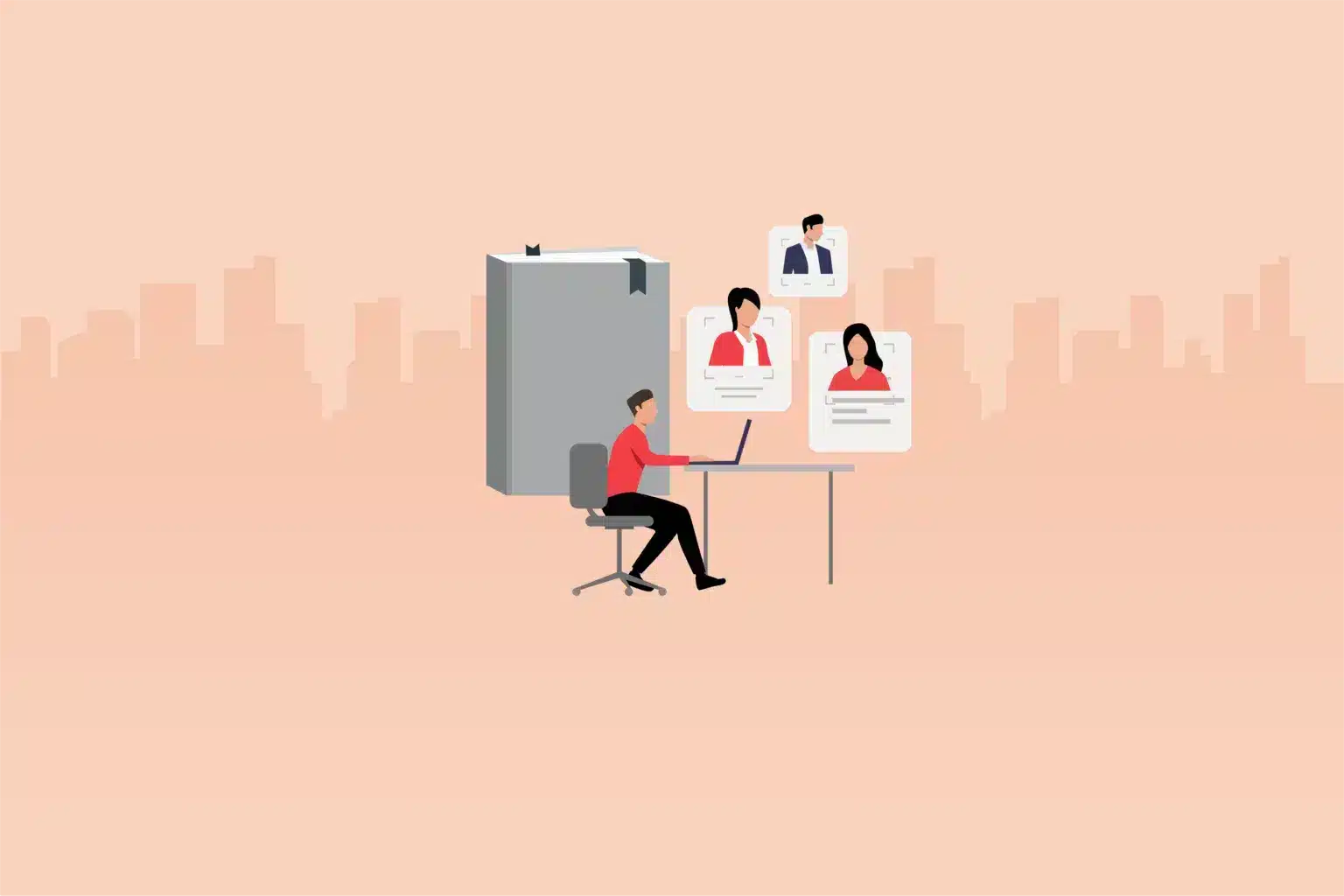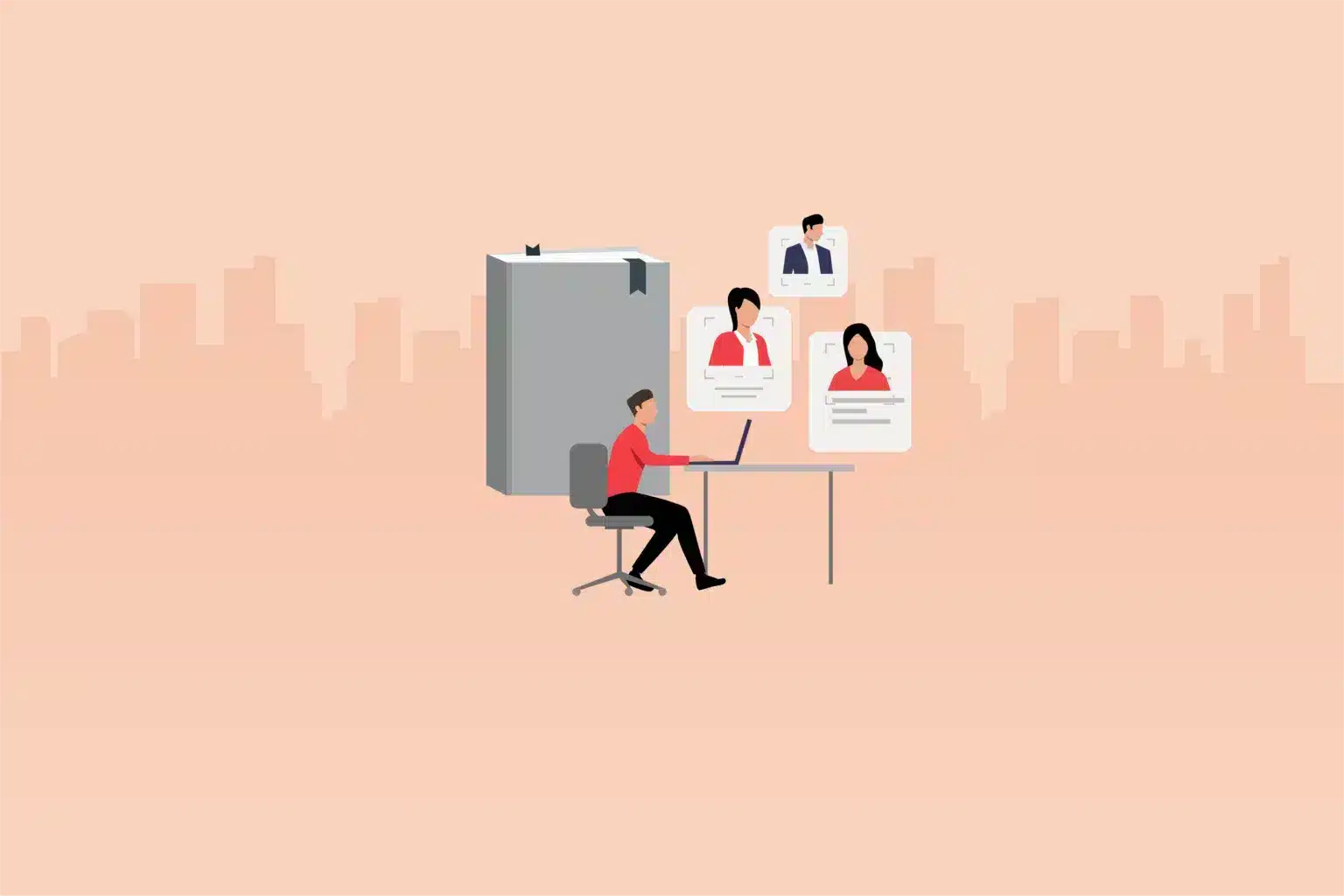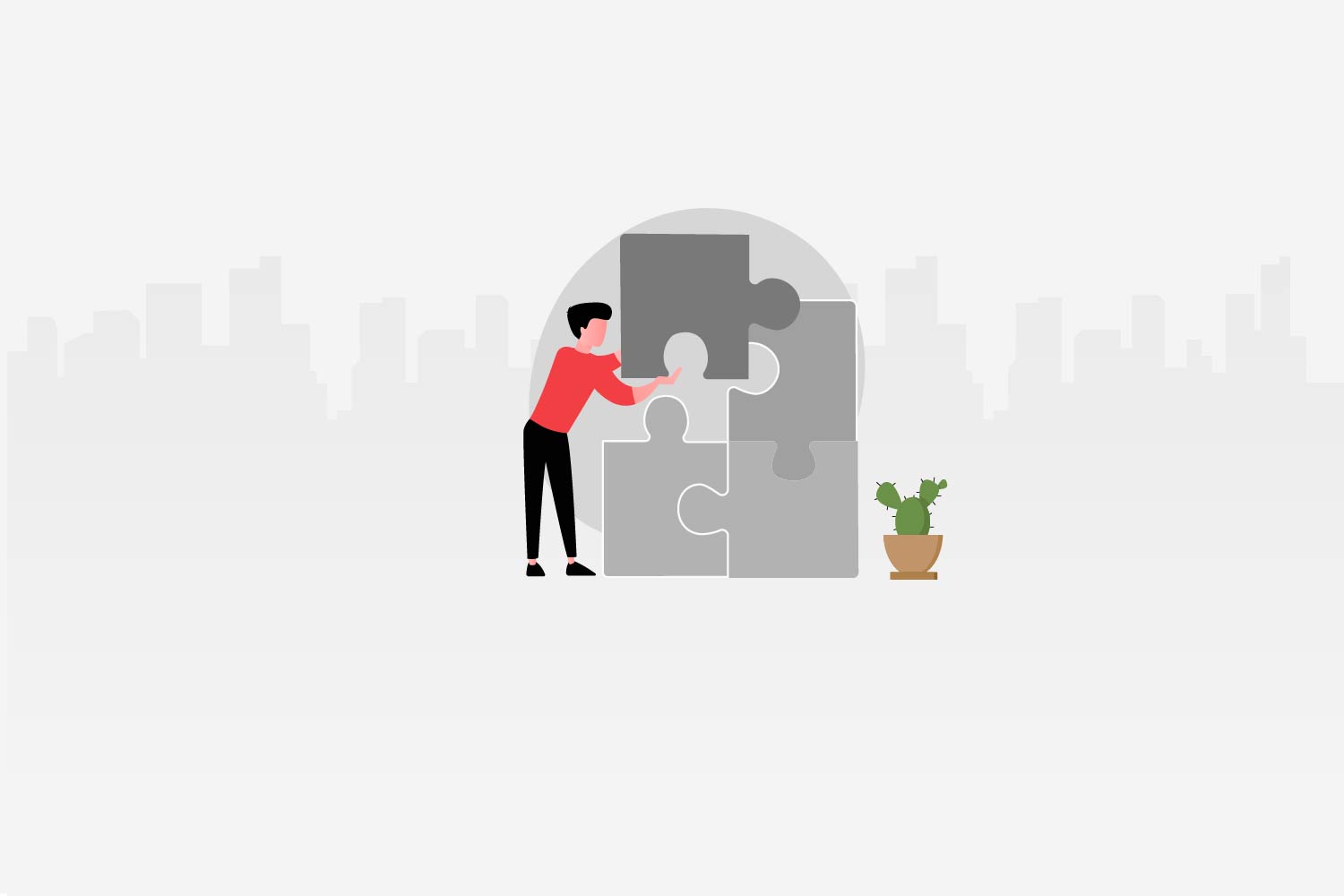In today’s ever-evolving business landscape, the role of a Licensing Specialist has gained significant prominence. As organizations strive to expand their reach and protect their intellectual property, the demand for skilled professionals in licensing and compliance has surged.
According to recent analytics, the recruitment trend for Licensing Specialists has witnessed a remarkable upswing, reflecting the growing importance of this role across industries. HR professionals and CXOs are increasingly recognizing the value of Licensing Specialists in ensuring regulatory compliance, optimizing licensing strategies, and safeguarding the organization’s assets. In this context, it becomes crucial to understand the dynamics of this specialized field and explore the key competencies required to excel as a Licensing Specialist.
Here are the top 60 Licensing Specialist interview questions to ask job applicants:
15 general interview questions for the Licensing Specialist
- Can you provide an overview of your experience and background in licensing and compliance?
- How do you stay updated on the latest regulations and industry best practices related to licensing?
- Can you describe your approach to conducting thorough license audits and ensuring compliance?
- How do you handle complex licensing agreements and negotiations?
- Share an example of a challenging licensing issue you encountered and how you resolved it.
- How do you prioritize and manage multiple licensing projects simultaneously?
- Can you explain your strategy for identifying and mitigating licensing risks?
- What steps do you take to ensure that licensing agreements align with organizational goals and objectives?
- How do you collaborate with internal teams or stakeholders to ensure licensing requirements are met?
- Share an example of a successful licensing agreement you negotiated and the positive impact it had on the organization.
- Can you discuss your experience with license renewals and managing the associated timelines and documentation?
- How do you handle disputes or conflicts arising from licensing agreements?
- Describe your process for evaluating potential licensing opportunities and assessing their feasibility.
- How do you maintain accurate and up-to-date records of licensing agreements and related documentation?
- What software tools or systems do you utilize to streamline licensing processes and improve efficiency?
5 sample answers to general interview questions for the Licensing Specialist
- Can you provide an overview of your experience and background in licensing and compliance?
Look for: A comprehensive understanding of licensing and compliance processes, relevant industry experience, and any specialized certifications or training.
Example answer: “I have over five years of experience in licensing and compliance, specifically in the pharmaceutical industry. I hold a certification in regulatory affairs, which has equipped me with a deep understanding of the regulatory landscape. Throughout my career, I have successfully managed licensing agreements, conducted audits, and ensured compliance with applicable regulations.”
- How do you handle complex licensing agreements and negotiations?
Look for: Strong negotiation skills, the ability to understand and interpret complex legal terms, and a track record of successful license agreement negotiations.
Example answer: “When faced with complex licensing agreements, I take a meticulous approach. I thoroughly analyze the terms and conditions, paying attention to any legal implications. I leverage my negotiation skills to strike a balance between the organization’s interests and the licensor’s requirements. For instance, in my previous role, I successfully negotiated a complex software licensing agreement that resulted in a 15% reduction in licensing costs.”
- How do you prioritize and manage multiple licensing projects simultaneously?
Look for: Effective time management skills, the ability to handle multiple deadlines, and experience in coordinating cross-functional teams.
Example answer: “Prioritizing and managing multiple licensing projects requires careful planning and effective time management. I start by assessing the urgency and importance of each project and then create a detailed project timeline. I also ensure clear communication and collaboration with cross-functional teams involved. In my previous role, I successfully managed four simultaneous licensing projects, meeting all deadlines and achieving successful outcomes.”
- Can you discuss your experience with license renewals and managing the associated timelines and documentation?
Look for: Knowledge of license renewal processes, attention to detail in documentation, and experience in managing renewal timelines effectively.
Example answer: “I have extensive experience in license renewals, ensuring that all necessary documentation is in order and renewals are completed within the specified timelines. I maintain a meticulous tracking system for license expirations, sending out timely reminders to stakeholders. In my previous role, I successfully renewed over 100 licenses annually, with a 100% renewal rate and zero instances of expired licenses.”
- How do you collaborate with internal teams or stakeholders to ensure licensing requirements are met?
Look for: Strong interpersonal skills, ability to communicate effectively, and experience in fostering collaboration with various stakeholders.
Example answer: “Collaboration is key in ensuring licensing requirements are met. I proactively engage with internal teams, such as legal, procurement, and product development, to align licensing strategies with organizational goals. I schedule regular meetings to gather input, address concerns, and ensure smooth coordination. For example, I recently collaborated with the product development team to incorporate licensing requirements into the product roadmap, resulting in streamlined compliance and faster time to market.”
15 behavioral interview questions for a Licensing Specialist
- Tell me about a time when you had to navigate a complex licensing agreement. How did you approach it, and what was the outcome?
- Describe a situation where you faced resistance or pushback from stakeholders during a licensing project. How did you handle it?
- Can you share an example of a licensing compliance issue you identified and resolved proactively?
- Tell me about a time when you had to negotiate licensing terms with a difficult licensor. How did you handle the negotiation, and what was the result?
- Describe a time when you had to manage competing priorities and deadlines for multiple licensing projects. How did you handle the situation?
- Can you provide an example of a licensing risk you identified and mitigated effectively?
- Tell me about a time when you had to work closely with legal or regulatory teams to ensure compliance with licensing requirements. How did you collaborate, and what was the outcome?
- Describe a challenging licensing audit you conducted. How did you ensure accuracy and compliance throughout the process?
- Can you share an example of a successful licensing strategy or initiative you developed and implemented? What impact did it have on the organization?
- Tell me about a time when you had to handle a licensing dispute or conflict between different parties. How did you resolve it?
- Describe a situation where you had to adapt quickly to changes in licensing regulations or industry standards. How did you stay updated, and how did you ensure compliance?
- Can you provide an example of a licensing project where you had to collaborate with cross-functional teams? How did you ensure effective communication and coordination?
- Tell me about a time when you had to educate internal stakeholders about licensing requirements or changes. How did you approach the communication, and what was the outcome?
- Describe a time when you had to analyze and assess the financial impact of licensing agreements. How did you evaluate the costs and benefits?
- Can you share an example of a licensing-related improvement or process optimization you implemented to enhance efficiency or reduce costs?
5 sample answers to behavioral interview questions for the Licensing Specialist
- Tell me about a time when you had to navigate a complex licensing agreement. How did you approach it, and what was the outcome?
Look for: Ability to handle complexity, strong analytical skills, and a successful resolution to the situation.
Example answer: “In a previous role, I encountered a complex licensing agreement that involved multiple territories and intricate royalty calculations. To approach it, I meticulously reviewed the agreement, seeking clarification on ambiguous terms and conditions. I collaborated closely with the legal team to ensure compliance. Through thorough analysis and negotiation, I was able to simplify the terms, resulting in a more streamlined agreement that satisfied both parties and reduced royalty calculation errors.”
- Describe a situation where you faced resistance or pushback from stakeholders during a licensing project. How did you handle it?
Look for: Effective communication and conflict resolution skills, the ability to build rapport with stakeholders, and a positive outcome despite initial resistance.
Example answer: “During a licensing project, I faced resistance from a group of stakeholders who had concerns about the financial implications and potential disruption to their workflow. To address this, I scheduled individual meetings with each stakeholder to understand their concerns and perspectives. I actively listened and empathized with their viewpoints, addressing their specific concerns and providing clear explanations of the project’s benefits. By involving them in the decision-making process and demonstrating transparency, I was able to gain their support and successfully implement the licensing project.”
- Can you share an example of a licensing compliance issue you identified and resolved proactively?
Look for: Attention to detail, proactive problem-solving skills, and a strong sense of responsibility for ensuring compliance.
Example answer: “In a previous role, I discovered a licensing compliance issue during an internal audit. It was revealed that some licenses had expired without renewal, potentially exposing the organization to legal risks. Recognizing the significance of the issue, I immediately initiated an action plan, involving relevant stakeholders and establishing a streamlined process to track and renew licenses in advance. By proactively addressing the compliance gap, we successfully mitigated potential risks and established a robust system for ongoing license management.”
- Tell me about a time when you had to negotiate licensing terms with a difficult licensor. How did you handle the negotiation, and what was the result?
Look for: Strong negotiation skills, the ability to maintain professional relationships, and a favorable outcome despite challenges.
Example answer: “During a licensing negotiation, I encountered a licensor who had rigid terms and was resistant to any changes. Recognizing the importance of the partnership, I approached the negotiation with a collaborative mindset. I conducted thorough research to understand the licensor’s motivations and concerns, and I prepared a persuasive case supported by market data. Through active listening, building rapport, and finding common ground, I successfully negotiated more favorable terms that satisfied both parties and resulted in a long-term, mutually beneficial licensing agreement.”
- Describe a time when you had to manage competing priorities and deadlines for multiple licensing projects. How did you handle the situation?
Look for: Strong time management skills, the ability to prioritize effectively, and successful completion of all projects.
Example answer: “In a previous role, I found myself managing three simultaneous licensing projects with overlapping deadlines. To handle the situation, I created a detailed project plan, breaking down tasks, setting realistic timelines, and identifying critical milestones. I communicated with the stakeholders to manage expectations and provide progress updates. Additionally, I leveraged project management tools to track and monitor the progress of each project. By prioritizing tasks, delegating when necessary, and effectively managing my time, I successfully completed all three licensing projects within their respective deadlines.”
15 personality interview questions for the Licensing Specialist
- How do you handle high-pressure situations or tight deadlines?
- Can you describe a time when you had to adapt quickly to unexpected changes in licensing regulations or requirements?
- How do you stay organized and detail-oriented when managing a large volume of licensing documentation and paperwork?
- Tell me about a time when you had to collaborate with individuals from diverse backgrounds or departments to achieve licensing goals. How did you ensure effective teamwork?
- How do you prioritize your workload and manage your time effectively?
- Can you share an example of a situation where you had to make a difficult decision regarding licensing compliance? How did you approach it?
- Describe a time when you had to communicate complex licensing terms or requirements to non-technical stakeholders. How did you ensure a clear understanding?
- How do you ensure ongoing professional development and stay updated on industry trends and best practices in licensing?
- Can you tell me about a time when you had to resolve a conflict or disagreement with a colleague or stakeholder during a licensing project? How did you handle it?
- Describe a situation where you had to demonstrate attention to detail in analyzing licensing agreements or contracts. How did you ensure accuracy?
- How do you approach building and maintaining positive relationships with licensors or external partners?
- Can you share an example of a time when you had to balance the need for compliance with licensing requirements and the organization’s desire for innovation or flexibility?
- How do you handle situations where licensing negotiations become challenging or contentious? How do you maintain professionalism and positive outcomes?
- Describe a time when you had to exercise strong problem-solving skills to overcome a licensing-related obstacle or issue.
- How do you demonstrate a commitment to ethical conduct and integrity in your work as a Licensing Specialist?
5 sample answers to personality interview questions for Licensing Specialists
- How do you handle high-pressure situations or tight deadlines?
Look for: Ability to stay calm under pressure, effective time management skills, and a proactive approach to meeting deadlines.
Example answer: “When faced with high-pressure situations or tight deadlines, I prioritize tasks based on urgency and importance. I break down complex projects into manageable steps and create a detailed timeline. By staying focused, maintaining open communication with stakeholders, and seeking support when needed, I have successfully delivered projects on time even in demanding circumstances. For instance, during a licensing audit, I encountered unexpected challenges, but by remaining composed and restructuring my approach, I completed the audit within the given deadline.”
- Can you describe a time when you had to adapt quickly to unexpected changes in licensing regulations or requirements?
Look for: Flexibility, the ability to learn and adapt rapidly, and a proactive approach to staying updated on regulatory changes.
Example answer: “In my previous role, there was a sudden change in licensing regulations that impacted our organization’s compliance requirements. To adapt quickly, I immediately researched and analyzed the new regulations, seeking guidance from industry resources and legal experts. I then developed a comprehensive plan to update our licensing processes and documentation accordingly. By proactively implementing these changes, we ensured ongoing compliance despite the unexpected regulatory shift.”
- How do you stay organized and detail-oriented when managing a large volume of licensing documentation and paperwork?
Look for: Strong organizational skills, attention to detail, and the ability to implement effective systems or tools for documentation management.
Example answer: “I prioritize organization and attention to detail when managing licensing documentation. I utilize electronic document management systems to categorize and store licenses, contracts, and associated paperwork. I also maintain a meticulous record-keeping system that includes clear labeling and version control. By implementing these practices, I ensure easy retrieval of documents, mitigate the risk of errors and provide accurate information during audits or license renewals.”
- Tell me about a time when you had to collaborate with individuals from diverse backgrounds or departments to achieve licensing goals. How did you ensure effective teamwork?
Look for: Collaboration and communication skills, the ability to work well with diverse teams, and the capacity to build rapport and foster a collaborative environment.
Example answer: “In a recent licensing project, I collaborated with stakeholders from various departments, including legal, finance, and product development. To ensure effective teamwork, I organized regular meetings to align our goals, clarify expectations, and establish clear communication channels. I actively listened to different perspectives, acknowledged diverse expertise, and encouraged open dialogue. By fostering a collaborative environment and promoting shared ownership of the project, we successfully achieved licensing goals and delivered a comprehensive licensing strategy.”
- How do you approach building and maintaining positive relationships with licensors or external partners?
Look for: Strong relationship-building skills, effective communication abilities, and the ability to establish trust and rapport with external stakeholders.
Example answer: “Building and maintaining positive relationships with licensors or external partners is crucial in the licensing process. I prioritize open and transparent communication, actively listening to their needs and concerns. I strive to understand their business objectives and align them with our organization’s goals. By demonstrating reliability, meeting deadlines, and consistently delivering on our commitments, I have built strong partnerships with licensors. For example, in my previous role, I developed a collaborative relationship with a key licensor, resulting in expanded licensing opportunities and mutual business growth.”
When should you use skill assessments in your hiring process for Licensing Specialists?
Skill assessments should be used in the hiring process for Licensing Specialists to evaluate candidates’ proficiency in key skills required for the role. Assessments are important because they provide an objective and standardized way to measure a candidate’s abilities, ensuring that the selected candidate possesses the necessary skills and knowledge to excel in the position. By incorporating skill assessments, organizations can make informed hiring decisions based on concrete evidence rather than relying solely on resumes and interviews.
There are several assessments that can be used to assess the skills of Licensing Specialists. These assessments may include:
- Licensing Knowledge Test
This test evaluates candidates’ understanding of licensing concepts, regulations, and best practices. It assesses their knowledge in areas such as licensing agreements, compliance, intellectual property, and contract negotiation.
- Analytical and Problem-Solving Assessments
These assessments measure candidates’ ability to analyze complex licensing scenarios, identify issues or risks, and propose effective solutions. They evaluate critical thinking, decision-making, and problem-solving skills, which are vital for a Licensing Specialist to navigate licensing challenges.
- Communication and Negotiation Exercises
These exercises assess candidates’ communication skills, including their ability to articulate licensing terms clearly, engage in effective negotiation, and build rapport with stakeholders. They may involve role-playing exercises or written simulations to evaluate candidates’ communication and negotiation abilities.
- Time Management and Prioritization Assessments
Given the demanding nature of licensing work, it is essential for Licensing Specialists to effectively manage their time and prioritize tasks. These assessments evaluate candidates’ organizational skills, ability to handle multiple projects simultaneously and meet deadlines in a fast-paced environment.
By utilizing these skill assessments, organizations can gain a comprehensive understanding of candidates’ abilities and select those who demonstrate the desired skills and competencies required for success as a Licensing Specialist.
Use our interview questions and skill tests to hire talented Licensing specialists
Unlock the potential of your hiring process with Testlify’s comprehensive skill assessments and interview questions specifically designed for Licensing Specialist.
Our extensive test library offers a wide range of assessments, including cognitive function, personality, situational judgment, programming, and more. By leveraging these assessments, you can objectively evaluate candidates’ abilities, ensuring you shortlist the most talented individuals efficiently.
To further enhance your hiring process, we invite you to book a free 30-minute live demo. Our expert team will guide you through the platform, showcasing relevant skill tests tailored to your hiring needs. With our support, you can streamline candidate selection, saving valuable time and resources.
Ready to find the perfect fit for your Licensing Specialist role? Testlify provides the tools you need to make informed hiring decisions. Explore our skill assessments and interview questions today to uncover exceptional talent for your team.







